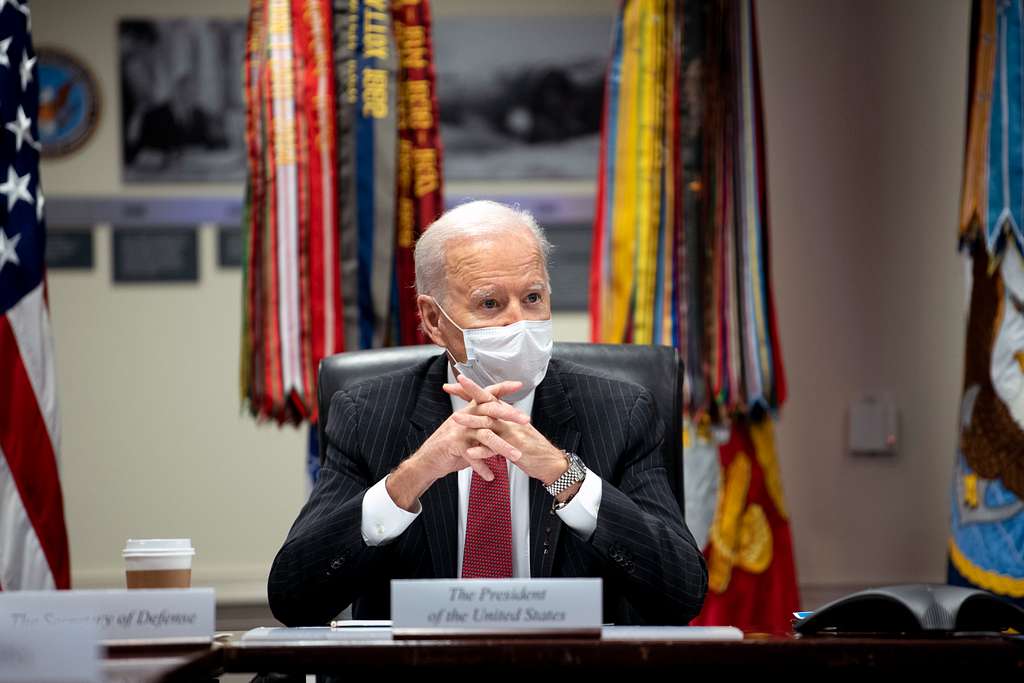Features Editor Ishaan Rahman on President Joe Biden’s challenging first year in office and where his administration will go next
As Joe Biden reaches one year since his inauguration as US President, political pundits from across the political spectrum can agree on one thing: the President has upended all expectations of him, for better and worse. Predictions that Biden would be a mild-mannered commander-in-chief with a largely uneventful term in office were wrong.
Instead, President Biden has, or at least attempted, to implement an ambitious social agenda, to address the four major challenges he identified in his inauguration speech: Coronavirus, climate change, economic recovery and racial inequality. He’s aggressively attacked the Republicans for opposing policies that are broadly popular with the American people. He’s also had to manage the rise of new Coronavirus variants, an unsteady economic recovery and crises abroad.
“Old grandpa” Joe has had one rollercoaster of a year. The question is what implications does his presidency have for upcoming Midterm Elections in November and what issue will his administration tackle next.
Coronavirus
Back in 2020, the Coronavirus pandemic was a death knell for former President Donald Trump’s re-election prospects and, arguably, put Joe Biden in office. The former’s disregard for scientific, evidence-based solutions, such as lockdowns and masks coupled with the economic downturn cost him support in a vital election year. Upon taking office, Biden took a decisively different approach. He passed executive orders requiring masks in federal buildings, publicly endorsed Covid-19 vaccines and associated himself with renowned epidemiologists, such as Dr. Anthony Fauci.
In March last year, Biden’s popularity soared as he passed a $1.9 trillion Covid-19 stimulus bill which provided much-needed relief checks to American families. The speedy rollout of America’s vaccination programme also earned him support from the public.
That all being said, the rise of the Delta and, later, Omicron variants have thrust America back into a crisis, with hospitalisations rising. Biden mostly appeared helpless to control the outbreak although Republican Governors, such as Florida’s Ron DeSantis, who have opposed any Covid-19 restrictions have also received palpable backlash. As of now, the public still view Democrats as the best party to handle the pandemic but it could end up being a losing issue for them either way, as it was with Trump. If the virus subsides, voters may end up refocusing on issues like illegal immigration or crime which Republicans are more trusted on. Likewise, if the pandemic rages on, the public may lose faith in the ability of the Biden administration to control it.
The economy
Biden’s presidency has also been tainted by the historically-high inflation that has plagued economies throughout the west. In fact, it’s the rising price of gas, food and other necessities that caused the downturn in the President’s approval rating from 55% to just 43% now; only Trump had a lower rating at this point in his presidency. The tumultuous withdrawal from Afghanistan also facilitated Biden’s decline in popularity. Inflation provided Republicans a much-needed attack line agains the administration. That issue dominated in state of Virginia’s off-year Governor’s race to the benefit of Republican Glenn Youngkin who was elected despite Biden winning the state by 10 points over Trump just a year ago. However, it’s not certain that inflation will last until the midterm elections nor if voters will ultimately blame Biden; polls currently show that most Americans (correctly) believe that global supply chain issues are at the root of the problem.
It’s not all bad news for Democrats on the economy either. Biden spearheaded the passage of a bipartisan infrastructure bill that is extremely popular with voters in key battleground states, such as Pennsylvania, Wisconsin, Ohio and Michigan. While inflation is sky-high, unemployment is down and GDP growth is strong.
An unfinished agenda
Biden came into office with impossibly high expectations from progressives within his party. They were demanding action on issues ranging from universal healthcare to climate change action to gun control. However, those ambitions came into direct collision with moderates within the Democratic Party namely Senators Joe Manchin and Kyrsten Sinema. Because the party holds narrow majorities in the House of Representative and Senate, Biden needed virtually everyone, ranging from self-described “socialists” to centrists, on board to pass his agenda.
And he got it…at first. As mentioned, Biden won a major victory with the passage of the American Rescue Plan. He even won over some Republicans with a historic bill to upgrade America’s infrastructure. However, his expansive Build Back Better Act (which included popular provisions to expand healthcare, the social safety net and fight climate change) failed in the Senate, as Manchin announced his opposition. Democrats will likely pass a slimmed down version of the bill but it’s likely to disappoint progressives in the party as well as many families who would welcome an expanded child tax credit, lower prescription drug prices and paid family leave policies in the bill (America remains the only industrialised country to not require the latter).
Other Democratic priorities, have also hit a brick wall in the form of the filibuster, an obscure Senate rule that effectively requires non-spending legislation to garner 60 out of 100 votes to pass. Since Democrats only have 50 seats, the minimum required for a simple majority, they cannot break a filibuster and Republicans are unlikely to support legislation on voting rights, gun control or abortion access. The most urgent of those priorities was voting rights. After Trump falsely claimed the last election was fraudulent, Republican states implemented restrictive voting laws intended to make it harder for minorities and working-class people (who typically vote Democrat) to cast their ballot. A federal law change could easily combat these state-level restrictions but the filibuster prevented Democrats’ voting rights bill from passing. Manchin and Sinema have opposed abolishing the filibuster meaning that there is virtually no pathway for that bill or anything else. In the past, both parties have been skeptical of abolishing the filibuster; Republicans resisted doing so when they controlled the Senate.
What’s next
The Democratic Party currently hold full control of the US Government, with Biden as President and (slim) majorities in the House of Representative and Senate. However, elections for Congress will take place in November’s Midterms. Midterm Elections are typically rough for the incumbent party with Republicans losing over 40 seats in the House under Trump; Barack Obama, George W. Bush, Bill Clinton and Ronald Reagan saw their parties’ suffer similarly stinging defeats. All signs point to Biden experiencing the same. His approval rating is mediocre at best, Democrats suffered a surprise loss in Virginia (often considered a sign of what’s to come) and Americans remain in a tough spot economically.
But Democrats can still minimise their losses. Because of Republican divisions between Trump loyalists and establishment moderates, the party lacks strong candidates in key Senate and Governor races. Democrats are running experienced candidates in GOP-held seats too meaning they could actually make some gains. Biden and Congress are also looking to pass a slimmed down version of his Build Back Better bill, including the Child Tax Credit, healthcare expansion and climate change action. While not as expansive as their original proposal, these measures are popular with the public. Democrats are also keen to tout their other accomplishments, such as the Covid-19 relief plan and infrastructure bill. They’ve arguably accomplished more in one year than most other administrations. It’s also likely that inflation will slow as supply chains recover.
Nothing is certain as of yet. However, the tides are largely turning against the Biden administration. The pandemic continuing to rage on, inflation skyrocketing and disappointing progress on passing their agenda have blunted the momentum Democrats had at the beginning of the year. It remains to be seen whether the resilient, reliable Biden can revive his Presidency.















